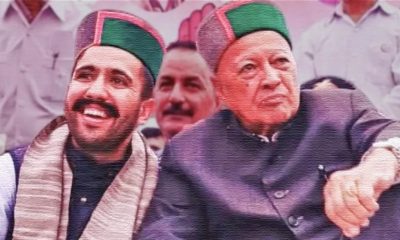News
HP FRMB (Amendment) Bill 2021: Raising Borrowing Limit Would Lead Himachal into Debt Trap, Will Damage Federal Structure, Says Opposition
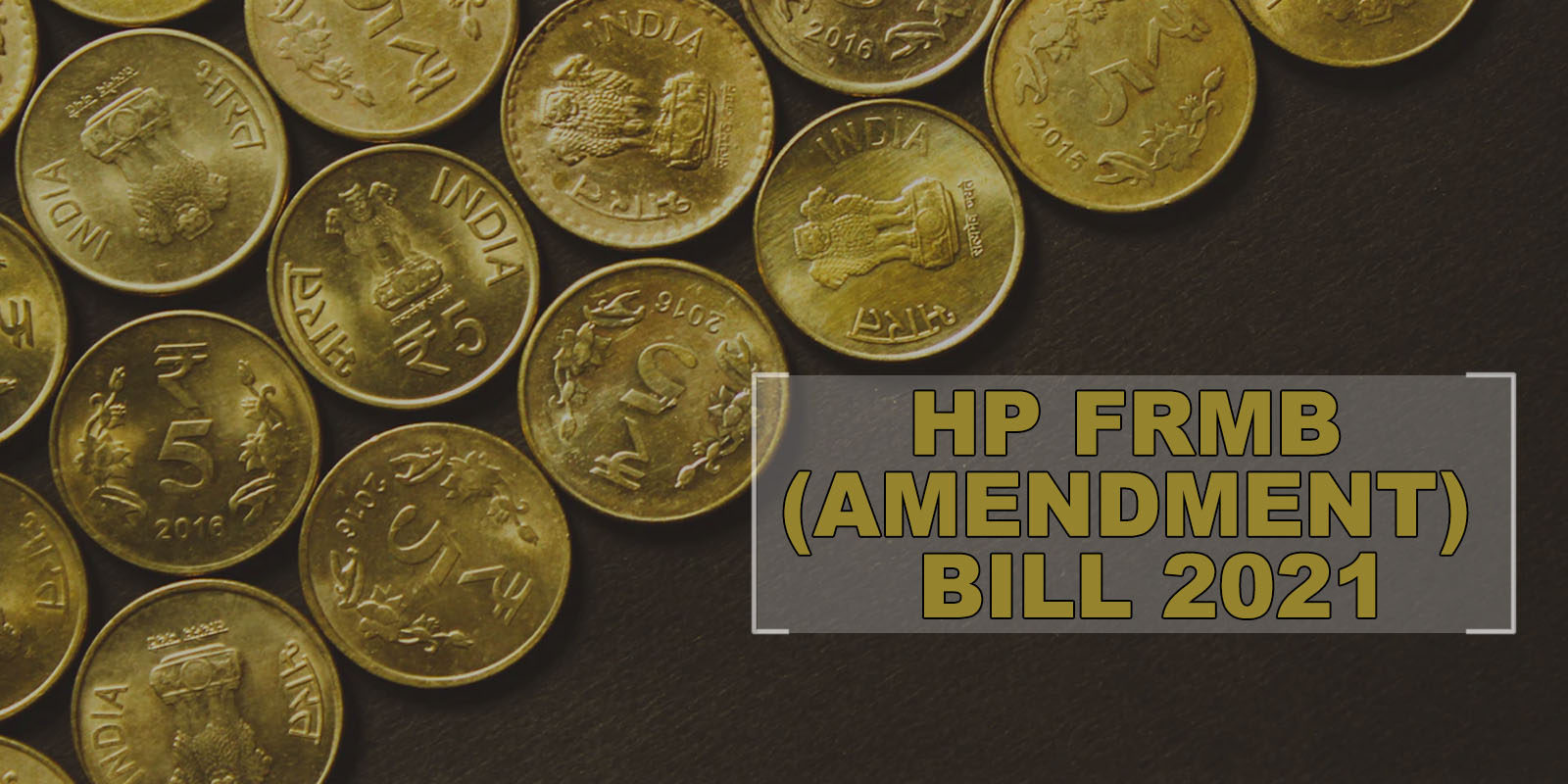
Shimla-Himachal Pradesh Fiscal Responsibility and Budget Management (FRMB) (Amendment Bill, 2021, was passed in State Vidhan Sabha on March 18, 2021, after a heated debate between the ruling government and the opposition that was followed by a walkout.
Opposition Congress and lone legislator from CPI (M), Rakesh Singha, opposed the Bill. They alleged that the government has no planning regarding managing state’s finances and dependents upon borrowings only.
According to the State Government, the Bill was introduced and passed to regularize excess borrowings in the year 2019-20. Previously, the state government could only borrow three percent of the gross state domestic product (GSDP), but after this amendment, this borrowing limit was raised allowing the state government to borrow upto five percent of the GSDP.
The opposition leader Mukesh Agnihotri and CPI(M) MLA Rakesh Singha insisted that it was a very delicate matter that is bound to have serious financial implications for the people of the state. They insisted that this Bill should first be sent to the Select Committee for detailed discussion before passing it.
“If the financial condition was so poor, then the state government should have mentioned in the Budget that it would generate resources through taxes,” Agnihotri said.
He said that this will go down as a black day in the history of the state. He argued that instead of fighting for its share from the Centre, the state government is covering up the fault of the Centre. He also said that the state government was already warned by the CAG in 2018 of the violations of the borrowing limits but it did not act then.
“Passing of this Bill would lead Himachal Pradesh into a debt trap and the state won’t be able to come out of it,” Rakesh Singha said.
“This Bill is an attack on the federal structure of the state,” he said.
Opposition and Singha argued that if this Bill is passed then the interest liability on the post-2022 borrowings would rise and Himachal Pradesh doesn’t have sufficient tax-based resources to repay this liability.
“When the GST was introduced then state governments and Centre government had reached an agreement that compensation at the rate of 14% would be given to the state for the 2017-22 period. The government had also imposed Central cess of various kinds, Singha said.
“However, now the states are being told to borrow as Centre had backtracked from providing the agreed compensation,” he added.
More borrowing would lead to more liabilities including interest-liability, he said, asking as to how the state plans to pay it back.
“I want to appeal that this Bill would have serious implication, therefore, send it to the Select Committee and the Cabinet for detailed debate,” he said.
There is only one solution to it, he said.
“Take your entire Cabinet to the Government of India and request it not to impose it on the State Government. Let the Central Government borrow this money,” Singha said. The opposition leader Agnihotri also supported Singha and said the opposition legislators would support the state government in doing so.
Moving on to the second objection, Singha quoted the sixth line of the Statements of Objects and Reasons.
“In addition, the State of Himachal Pradesh received one-time receipts from the Union Government on account of its share of Compensatory Afforestation Fund Management and Planning Authority (CAMPA) Funds credited in the Public Accounts, which is included in the public debt of the State,” he quoted from the Bill
He argued that the funds being given to the State for the protection of its own forests can’t be treated as a debt in the account of the State.
The Urban Development Minister Suresh Bhardwaj insisted that the Bills is introduced to regularize an anomaly caused by borrowings of the previous Congress government.
Bhardwaj tried to justify the Bill blaming then Congress government for violation of borrowing limits in the years 2012-13, 2013-14, and 2014-15. He also insisted that it was just a one-time relaxation for the year 2019-20.
Bhardwaj quoted the Bill,
“Provided that the fiscal deficit may exceed the level of 3 per cent but shall not exceed 5 per cent of the estimated Gross State Domestic Product in the Financial Year 20919- 2020.”
In 2013, State’s fiscal deficit was Rs 2978 crores – 3.6 percent, 2012 crores in 2013-14 – 4.23 percent and Rs 4200 crores in 2014-15 – 4.05 percent. The Bills is meant to regularize exceeded limits of borrowings in these years too, Bhardwaj argued.
He also said that the revenue collection of Centre under Goods Services Tax (GST) was low due to the pandemic in the said year due to which the state couldn’t get the share committed by the Centre. Bhardwaj also said that the borrowings increased in 2019-20 as funds of Rs 1600 crores received under the Compensatory Afforestation Fund Management and Planning Authority (CAMPA) were also counted as public debt.
He added that the Statement of Objects and Reasons clearly says “The actual receipts of Central taxes decline during 2019-20 due to which share of States also got affected.”
Following a heated argument, the Bill was passed in the absence of legislators who had walked out in protest against it.
News
HP Govt Employees to Get Higher Pay Scale on Completion of Two Years of Service: CM Jairam
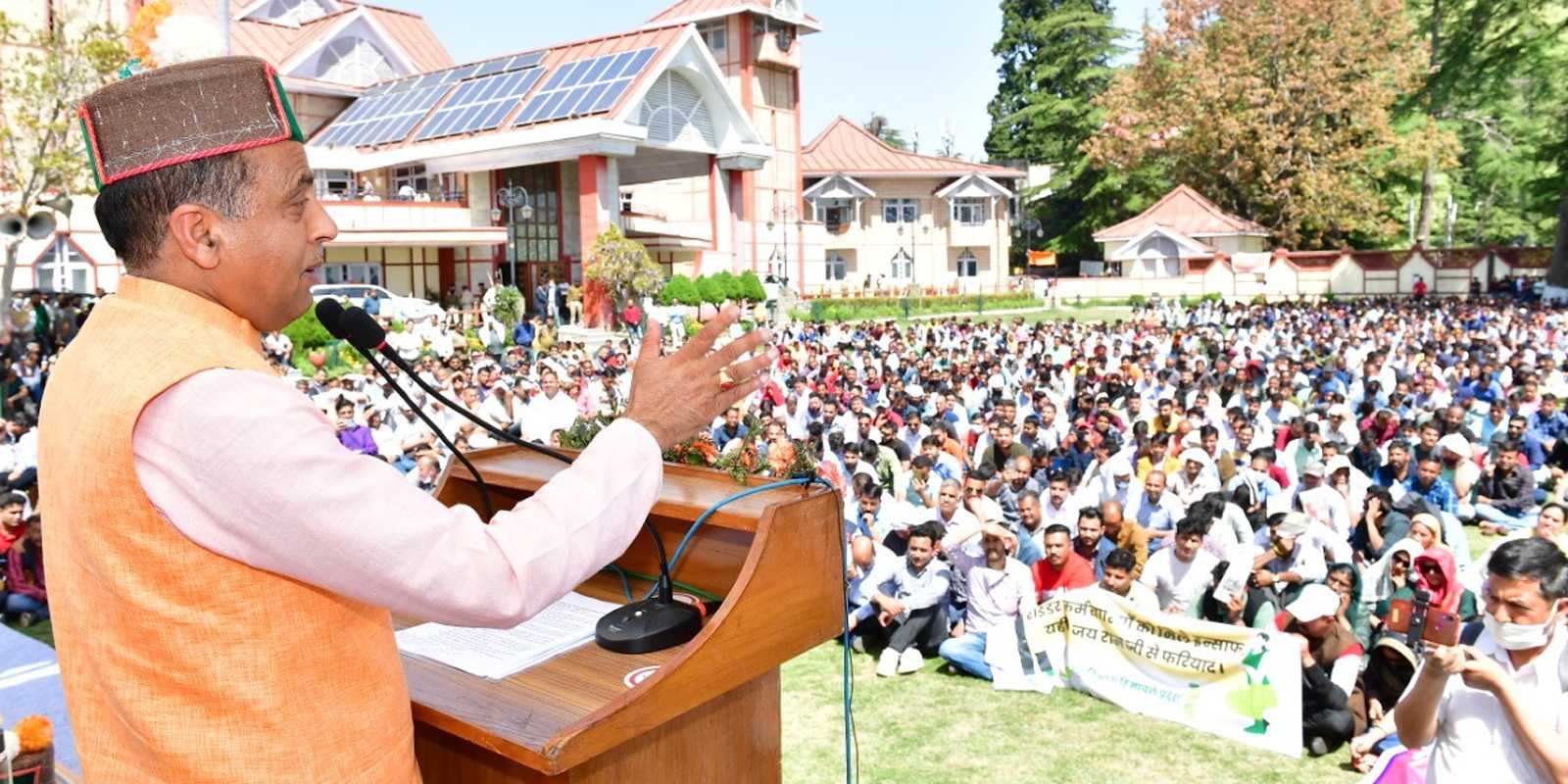
Shimla-Himachal Pradesh Government employees working in different departments before January 3, 2022, would be given a higher scale at par with other employees on completion of two years tenure of regular service. A higher pay scale was also announced for the Junior Office Assistants (IT) on completion of two years of regular service.
Chief Minister Jairam Thakur made these announcements during the Karamchari Maha Sammelan of the Himachal Pradesh Non-Gazetted Employees Federation at the hotel Peterhof on Sunday.
He appreciated the role played by the employee especially frontline workers in the battle against the pandemic.
He said most of the government employees in the state have been given revised pay scales and on average, every employee has got the benefit of a 12 to 15 percent salary hike. There has also been an increase in the pension of about 1.50 lakh pensioners of the state. The financial benefits of Rs. 7801 crore have been given to state government employees and pensioners from the year 2018 to 2022. The pensioners who retired before 2016 are getting the benefit of a 15 to 20 percent increase in the pension while around 40 thousand pensioners who retired after 2016 would be benefitted soon, he said.
He said the daily wages were Rs. 210 in the year 2017 which has been increased by the present state government to Rs. 350. Similarly, 12 per cent interim relief annually has been provided to government employees and pensioners during the present government’s tenure. He said the Himachal government has provided Dearness Allowance to its employees and pensioners on the lines of Punjab and Central governments from the due date. The Punjab government has given only 5 percent interim relief to the employees while the Himachal government has provided 21 percent interim relief to its employees.
“Out of the total interim relief amount given to the employees and pensioners amounting to about Rs. 6500 crore, Rs. 3500 crore has been paid during the tenure of our government” added the Chief Minister.
He said that the state government has increased the government contribution for NPS employees from 10 percent to 14 percent benefitting more than one lakh employees. The NPS employees are being given the benefits of retirement and death gratuity at par with employees falling under the old pension scheme. The government has also increased the upper limit of death gratuity from Rs. 10 lakh to Rs. 20 lakh.
The Chief Minister said the state government has also increased the honorarium of para-workers working in various departments. The salary of outsource workers has been hiked by Rs 1,500 per month.
Non-Gazetted Employees Federation President Ashwani Thakur thanked the Chief Minister for providing various financial and other benefits to different categories of government employees.
Nation
Most Covid Restrictions to be Lifted From March 31, Mask and Hand Hygiene to Continue
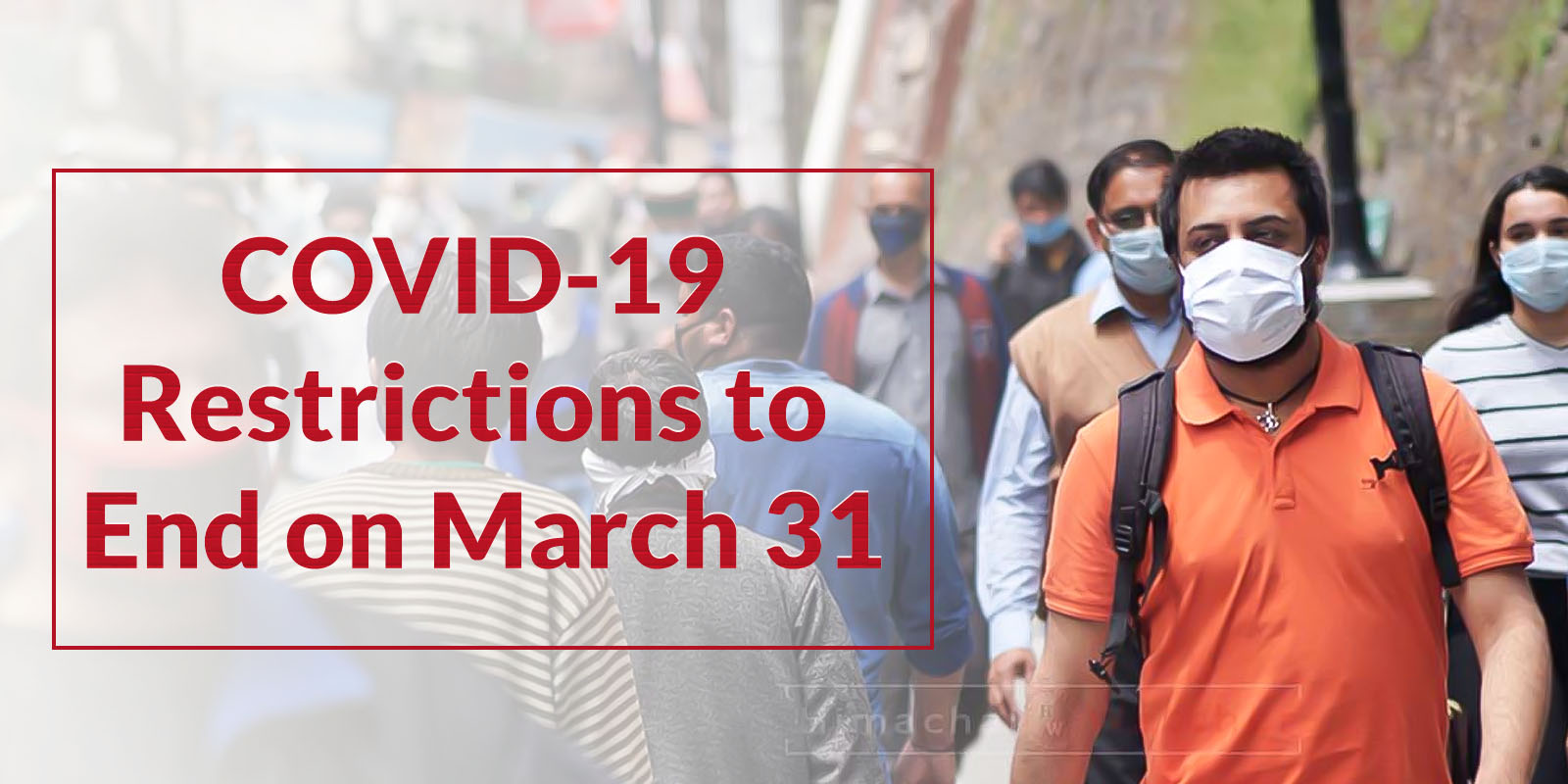
New Delhi-The Centre has issued a notification to the States informing that the provisions of the Disaster Management (DM) Act, 2005 will not be invoked in the country after March 31. The Union Health Ministry said that the use of face masks and following hand hygiene will continue.
It implies that most of the Covid-related rules and restrictions would end.
Union Home Secretary Ajay Bhalla issued the notification which said that the decision was taken following the overall improvement in the situation and the preparedness of the government in dealing with the COVID-19 pandemic.
However, local authorities and State police can still invoke fines and criminal cases against persons violating COVID-19 norms under the Indian Penal Code (IPC), a senior government official said.
The DM Act was invoked on March 24, 2020, due to the pandemic
“Over the last seven weeks or so there has been a steep decline in the number of cases. The total caseload in the country stands at 23,913 only and the daily positivity rate has declined to 0.28%. It is also worth mentioning that with the combined efforts, a total of 181.56 Cr vaccine doses have been administered,” the notification said.
“I would like to mention that in view of the nature of the disease, we still need to remain watchful of the situation. Wherever any surge in the number of cases is observed, the States/UTs may consider taking prompt and proactive action at a local level, as advised by MoHFW (Health Ministry) from time to time,” the notification said.
The Indian government had issued various guidelines and measures for the first time on March 24, 2020, under the Disaster Management Act to curb the COVID-19 situation in the country, which have been modified several times thereafter.
India currently has 23,087 active COVID-19 cases and recorded 1,778 new cases and 62 deaths in the last 24 hours. The daily positivity rate has also declined to 0.28%.
News
HP Cabinet Decisions: Country Liquor Made Cheaper in New Excise Policy, Read All Decisions
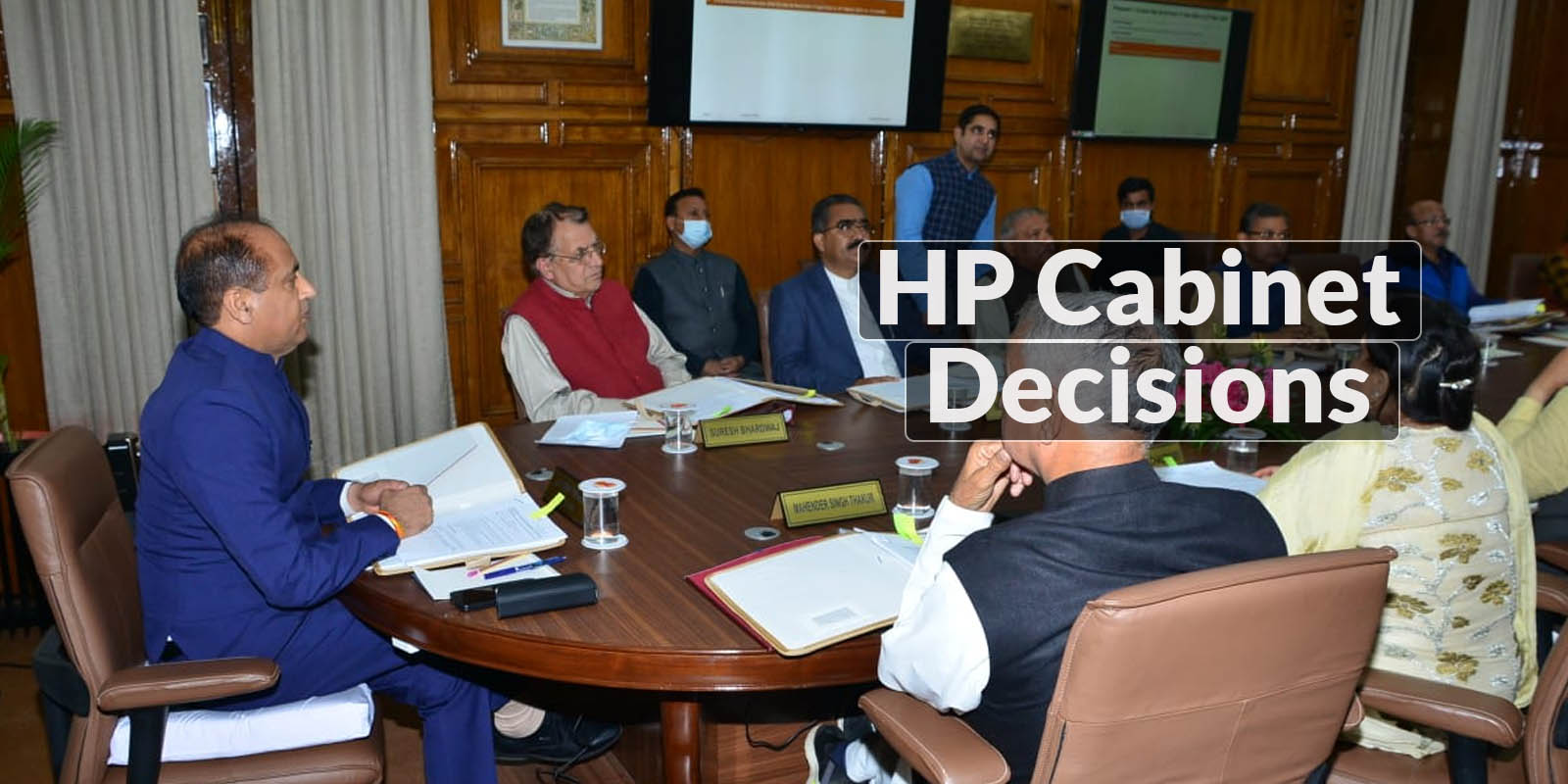
Shimla-A meeting of the Himachal Pradesh Cabinet was held on March 20, 2022, under the chairmanship of Chief Minister Jai Ram Thakur.
The excise policy for the financial year 2022-23 was approved. Approval was also given for the renewal of retail excise vends in the state for the financial year 2022-23 at the renewal fees of 4% of the value of unit/vend.
The State Government said that wants to enhance the government revenue and curb the smuggling of country liquor from the neighbouring states by a reduction in its price.
The brands of Country Liquor will be cheaper as license fees have been reduced. This will help in providing good quality liquor at a cheaper rate to the consumers.
In the new excise policy, the 15% fixed quota of country liquor for manufacturers and bottlers to be supplied to the retail licensees has been abolished. According to the government, this step will give the retail licensees to lift their quota from the suppliers of their choice and further assure the supply of good quality country liquor at competitive prices. The MRP of country liquor will be cheaper by 16% of the existing price.
In this year’s policy, the Gaudhan Vikas Nidhi Fund has been enhanced by Re.1/- from the existing Rs.1.50 to Rs.2.50.
The fixed annual license fee of Bars has been rationalized by abolishing the area-specific slabs of license fee. Now throughout the State, there will be uniform license slabs based upon the room capacity in hotels.
Rates of the annual fixed license fee of Bars in the tribal areas has been reduced considerably.
Further, all the above stakeholders will have to install CCTV cameras at their establishments as it was made mandatory for them.
Wholesale vends and retail vends, the penalty provisions under the H.P. Excise Act, 2011 have been made more stringent.
An end to end online Excise Administration System would be established in Himachal Pradesh, the government said.
HP Government estimates a collection of Rs 2131 crore revenue during the year, which will be Rs. 264 crores higher than the financial year 2021-22 – growth of 14% in state excise revenues.
The Cabinet also gave its nod to amend Himachal Pradesh Disaster Relief Manual-2012 to include deaths due to biting of honey bees, hornet and wasps, accidental drowning and deaths due to accidents of vehicles (including land, water and air) under this Manual.
The Cabinet gave its approval for filling up 11 posts of ‘A’ Class Tehsildar in Revenue Department through direct recruitment on regular basis through Himachal Pradesh Public Service Commission.
HP State Toll Policy 2022-23
The HP Cabinet also gave its nod to HP State Toll Policy for the year 2022-23 which envisages auction cum tender for all the toll barriers in the State. During the year 2021-22, toll revenue has registered a growth of 20 percent of the previous year’s revenue.


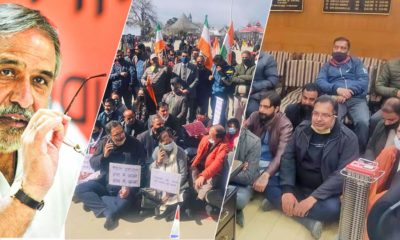

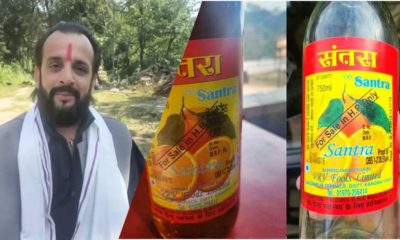

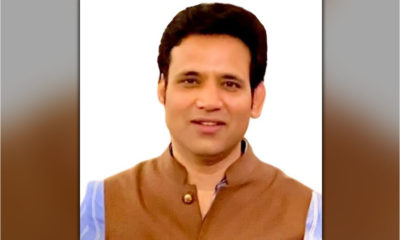







 Home Decor Ideas 2020
Home Decor Ideas 2020